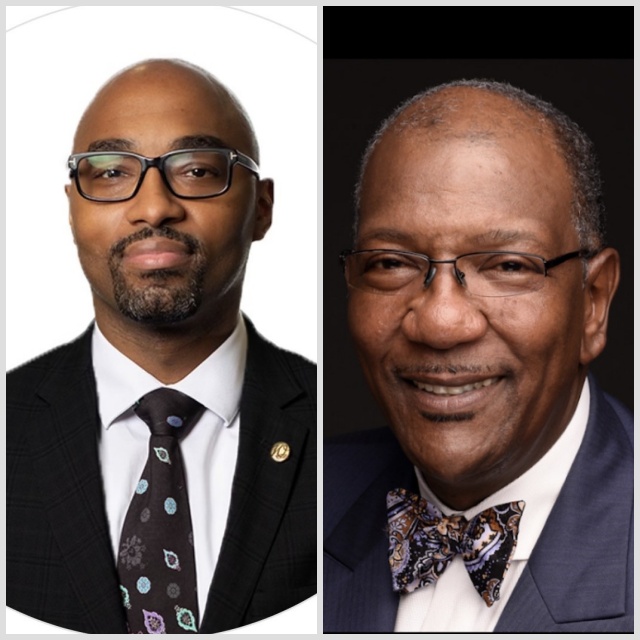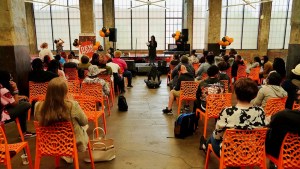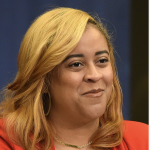By Megan Sayles,
AFRO Business Writer,
msayles@afro.com
While nurses, doctors, paramedics and other health care providers were rightfully praised for their frontline service during the COVID-19 pandemic, funeral directors became the forgotten heroes.
Not only did they manage unprecedented death tolls, navigated social distancing protocols while still conducting funeral services and comforted families who couldn’t be with their relatives during death. Aside from traditional offerings, funeral directors also had to innovate and step into the world of virtual funeral services.
They, too, were frontline workers.
In an effort to highlight their significance, the AFRO will host Honoring Our “Unsung Heroes,” an event to acknowledge the crucial role funeral professionals play in the Black community, on Aug. 6. The celebration will take place at Valley Mansion by Martin’s in Cockeysville, Md. from 1 to 4 p.m.
“The last three years have been some of the most challenging for our community. Many families suffered tremendous loss, and the losses would have been even greater had it not been for the compassionate care of funeral directors to whom we entrust our loved ones on their final journey home,” said Diane Hocker, community and public relations manager for the AFRO. “We decided to lift them up and show our appreciation for them.”
Funerals have always been a momentous occasion in the Black community. These celebrations of life, or “homegoings,” are typically large gatherings with vivacious funeral processions, powerful sermons and spirited gospel music.
The pandemic abruptly halted many traditions– including the Black funeral service.

“Celebration of life is very important in the African-American community because we gather to honor a loved one’s life. Funeral ceremonies and even the visitations and viewings can be large gatherings, but COVID-19 stopped that,” said Anthony Brayboy, funeral director and location manager for Wylie Funeral Homes in Randallstown, Md. “We weren’t able to schedule a day and time for public viewing and visitation at first. We had to get creative and do drive-thru viewings and visitations.”
Brayboy, who has worked at Wylie Funeral Homes for nearly a decade, said visitors would pull up to the location, walk in to see the deceased and then quickly return to their vehicles.
“That was very challenging because in the African-American community we like to come together, mourn together, grieve together and share old stories and memories,” said Brayboy.
Wylie Funeral Homes, like many other mortuary companies, instated virtual funeral services through Zoom and other live streaming services to comply with federally-mandated social distancing guidelines. At one point, services were restricted to 10 people.
Brayboy said at times, the company had to coordinate with hospitals so patients could access devices to watch their loved one’s celebration of life.
“It was difficult. Some husbands had to watch their wives’ funerals through livestream on a laptop or cell phone,” said Brayboy.
Wylie Funeral Homes also had to manage its employees’ concerns during the unprecedented time. Initially, funeral employees were not sure whether the disease could be caught from the deceased.
Several staff members contracted COVID-19, and Brayboy himself caught it twice. He thinks some people overlooked the importance of funeral service employees during the pandemic.
“Sometimes the public doesn’t always know or appreciate a funeral director until they have to use one,” said Brayboy.

Hari P. Close II, owner of Hari P. Close Funeral Service in Baltimore, Md., also said people were unaware of the toll the pandemic took on funeral professionals.
He is the chairman of the National Funeral Directors and Morticians Association. Many of his fellow funeral directors across the country died as a result of COVID-19.
“We lost about 380 funeral directors and that doesn’t include their staff. I know a couple of funeral homes that’s staff was wiped out,” said Close. “I went to more funerals for funeral directors than I ever have before.”
Close’s funeral home also pivoted to offer virtual services during the COVID-19 pandemic. At its start, the funeral director struggled to find personal protective equipment (PPE) for his staff.
He said he went to every retail store in his vicinity to stock up on protective gear. In an effort to safeguard his staff, many of whom are young with families, Close handled all of the embalming for three years.
Close was also instrumental in lobbying for morticians to be considered a top priority for COVID-19 vaccines.
In August, Hari P. Close Funeral Service will celebrate its 25th anniversary. Close said his primary goal is to educate people about the importance of funeral service traditions and to pass his knowledge down to the next generation.
“There’s so much education that needs to be done. We need to let people know that this human body might not be someone’s husband or wife, but it’s someone’s child,” said Close. “They deserve dignity no matter what choices they made in life.”
Megan Sayles is a Report for America Corps member.
Related Articles:
The post AFRO to host event honoring funeral professionals as ‘unsung heroes’ appeared first on AFRO American Newspapers .











